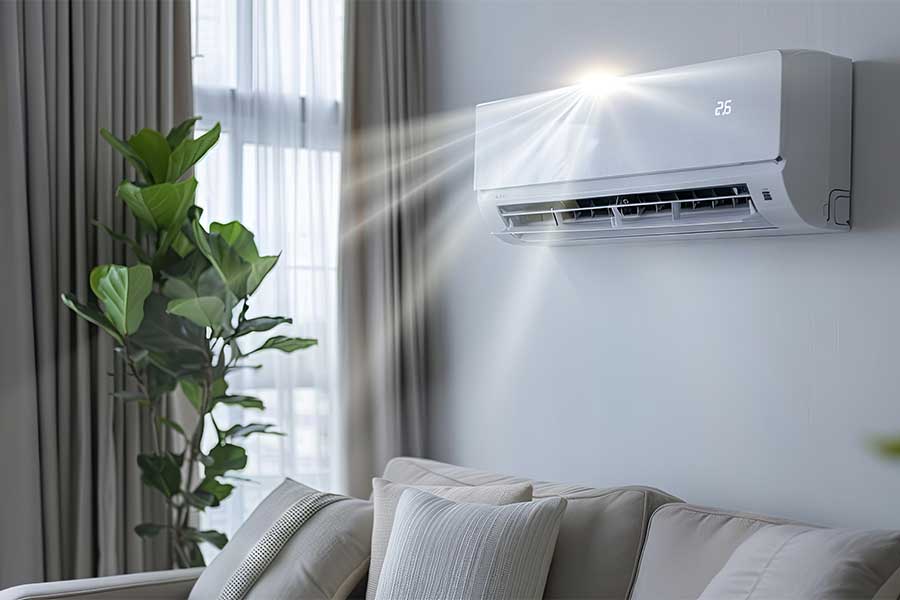 As As As the seasons change, it’s important to make sure your HVAC system is in top shape. Proper maintenance not only keeps your home comfortable year-round but also extends the life of your heating and cooling units, saving you money on costly repairs and replacements. As a dedicated Robert Tremblay REALTOR®, I’ve seen firsthand how an efficiently running HVAC system can enhance a home’s value and appeal, especially for potential buyers. Here are some easy and effective tips for maintaining your HVAC system to keep it running smoothly.
As As As the seasons change, it’s important to make sure your HVAC system is in top shape. Proper maintenance not only keeps your home comfortable year-round but also extends the life of your heating and cooling units, saving you money on costly repairs and replacements. As a dedicated Robert Tremblay REALTOR®, I’ve seen firsthand how an efficiently running HVAC system can enhance a home’s value and appeal, especially for potential buyers. Here are some easy and effective tips for maintaining your HVAC system to keep it running smoothly.1. Change Your Filters Regularly
One of the simplest and most effective ways to ensure your HVAC system is running efficiently is by changing the air filters regularly. Clogged filters restrict airflow, making your system work harder to heat or cool your home, which can lead to higher energy bills. Changing the filters every 1-3 months can also improve your indoor air quality, reducing allergens and ensuring a more comfortable living space.
2. Clean the Vents and Ducts
Dust and debris can accumulate in your vents and ducts, reducing the efficiency of your HVAC system. Clean vents ensure proper airflow, helping your system heat or cool your home more effectively. For hard-to-reach areas, consider hiring a professional duct cleaning service to thoroughly clean your ducts and improve air quality.
3. Inspect and Clean the Outside Unit
If your HVAC system includes an outdoor unit, make sure it’s free from debris, leaves, and dirt. The unit’s condenser coils need to be clear to function properly, and debris buildup can cause it to overheat or work less efficiently. Clean around the unit regularly and ensure that no plants, bushes, or furniture are blocking airflow.
4. Schedule Professional Maintenance
Even if you’re diligent about DIY maintenance, it’s still essential to have your HVAC system professionally inspected once or twice a year. A licensed technician can check for potential issues, clean the coils, check refrigerant levels, and test the system’s overall performance. Regular professional maintenance can catch problems early, preventing costly repairs down the line.
5. Seal Gaps and Insulate Ductwork
Leaky ductwork or gaps in windows and doors can let warm or cool air escape, forcing your HVAC system to work harder to maintain the desired temperature. Make sure your home is properly sealed to keep energy costs down. Insulating ducts and sealing any air leaks can increase your HVAC system’s efficiency and save you money in the long run.
6. Keep Your Thermostat in Check
Ensure your thermostat is working properly by recalibrating it or replacing the batteries as needed. Consider upgrading to a programmable thermostat for added convenience and energy savings. With a programmable thermostat, you can set your HVAC system to automatically adjust the temperature when you’re away or asleep, ensuring optimal comfort and energy efficiency.
7. Know When It’s Time to Replace Your HVAC System
Even with regular maintenance, HVAC systems don’t last forever. On average, a well-maintained system can last 10-15 years. If your system is approaching the end of its lifespan, or if you’re noticing significant drops in efficiency or rising repair costs, it might be time to consider replacing it. A new, energy-efficient system can significantly improve comfort in your home and make it more appealing to potential buyers.
Maintaining Your HVAC System is an Investment in Your Home
Taking care of your HVAC system is one of the easiest ways to ensure your home stays comfortable and energy-efficient. A well-maintained HVAC system not only adds value to your home but can also attract buyers if you decide to sell. As a professional Robert Tremblay REALTOR®, I understand how important it is to keep your home in great shape, especially when preparing to list it for sale. Keeping your HVAC system happy will ensure your home is ready for whatever buyers may need.
If you need expert advice on preparing your home for sale or want a FREE HOME EVALUATION, feel free to reach out today. Let’s work together to ensure your home is market-ready and stays in top condition for years to come.